Editor’s Note: This interview was conducted before the most recent Hurricanes Fiona and Ian in September, which devastated areas in and south of North America, including Florida and parts of the Caribbean Islands. Read our most recent How To Help article about how The Red Cross and others are working to bring aid to those affected.
It is human nature to plan for the future, but can you ever really plan for the unexpected? In recent years, more than ever, society has faced the aftermath of natural disasters like flooding and wildfires — the most recent example being Hurricane Ian which particularly devastated Florida. In that same vein, as September is National Preparedness Month, Better sat down with Joyce Trimuel — the Founder and CEO of Trimuel Enterprises, LLC and a Red Cross Board Member who in disaster relief. Here, we discuss the intersection of her work, community outreach and our collective navigation of disaster.
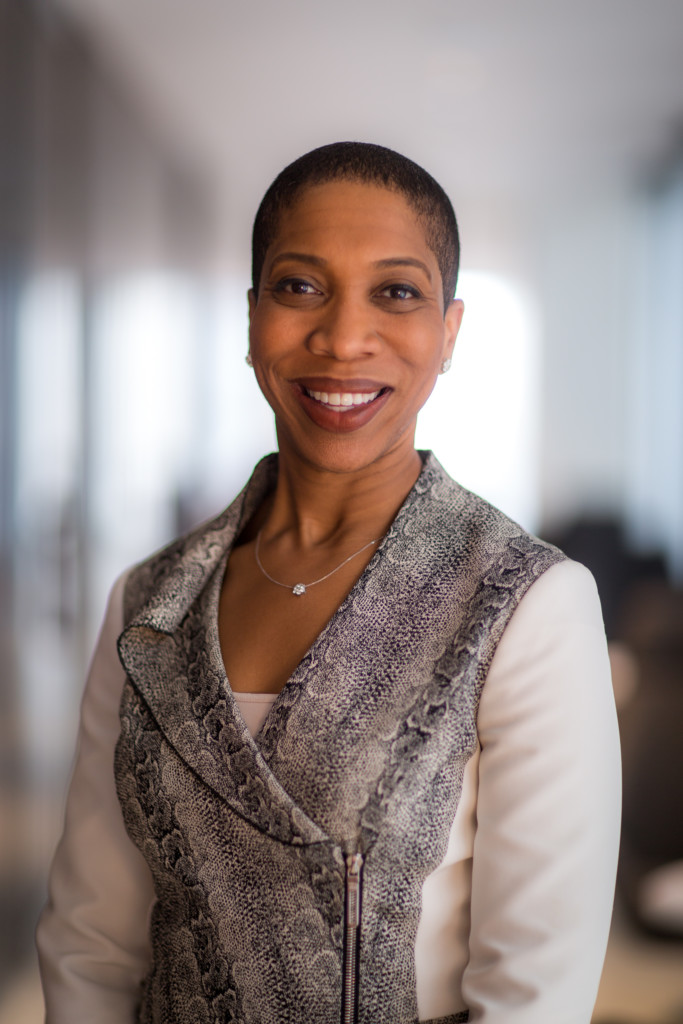
How did your career lead you to The Red Cross and how have the two impacted each other?
I joined The American Red Cross in 2017 and at that time I was a Global Chief Diversity Officer for a global publicly traded firm here in Chicago. So my introduction to The Red Cross was as an executive representing that particular organization in terms of getting involved with The Red Cross. Since that time … I left the corporate setting and I became an entrepreneur at the end of 2019; and my connection with The Red Cross has actually even expanded since that time. I will say given my background in terms of doing Diversity, Equity and Inclusion work, as well as just my overall commitment and interest in the mission and the vision of The Red Cross, I certainly have been able to leverage my skill set on several of the committees.
Initially when I joined The Red Cross, I was assigned to the Diversity, Equity and Inclusion Committee, as well as the Biomedical Services Committee. So I served on those committees for [over] three years, and I just transitioned to Board Development and Philanthropy. So it’s been great because I’ve been able to, again, like I mentioned, leverage my skill set in terms of where I tend to spend my time in my corporate work. But then, I’m also now able to really have in my mind a different impact, particularly as it relates to board development and our desire and need to have more diverse board members.
Over the years, as you’ve worked with The Red Cross, what have been some of the challenges you’ve faced in regards to your work? And what are the rewarding aspects?
I would say a pivotal moment for myself — and probably for most who think about 2020 — [was] the pandemic and also some of the social unrest that happened the summer of 2020. And so considering the fact that I am a subject matter expert in DEI, I was able to really support the local Red Cross team … helping them facilitate some conversations [that] related to the murder of George Floyd. And then in terms of “Are we being an inclusive organization? How are we showing up in the communities in which we provide services to?” And … providing those staff members with an opportunity to create a safe space, just so that folks can kind of talk through and manage their own personal perspectives, emotions and feelings at that time.
As for the personal connection, … within biomedical services, we have a very focused initiative on getting more diverse blood donors to help combat Sickle Cell Anemia — which is a blood disorder that impacts folks of African American descent at a much higher rate than other ethnicities and races. And I actually grew up with two childhood friends who I knew had Sickle Cell, but I didn’t necessarily connect the dots in terms of how blood transfusions were really a part of their care, it helped to keep them alive. And so for me, understanding the severity and the impact of Sickle Cell connected it to the need for more diverse blood donors. It really became very personal for me because it’s like, “I know people that are living with this disease that are managing it. And what can I do to create more awareness within the African American community about blood donation?”
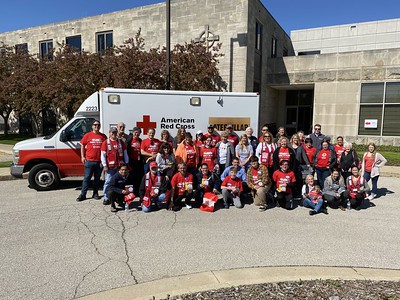
I had that moment of reflection, like, “I need to do more.” And for my 42nd birthday, I actually started a Roll Your Sleeves Up campaign — where essentially you’re doing a blood drive where folks within my network could go to any American Red Cross site and actually donate blood … and it was pretty cool. My thing was, “Hey, I just want to get 42 blood donors to represent every year of life for me.” But we were actually able to get 45 blood donors and then raise about $1,500 for The American Red Cross.
How do you take that same energy and apply it toward encouraging people to volunteer for The Red Cross — whether that is blood donation or physical volunteerism?
I think The Red Cross does such a great job of storytelling, and I think storytelling is incredibly powerful when you are actually able to hear firsthand from individuals who have benefited from the services of The Red Cross. They do a fantastic job of connecting people in terms of sharing their stories of how The Red Cross helps support them in some of their toughest times.
And I even think about their Sound The Alarm campaign, which is really around fire prevention and … ensuring that folks have working smoke detectors in their homes. [Smoke detectors are] one of those things that, admittedly, I’ll speak for myself, we can take for granted. You kind of have it without thinking about the benefit of it, right? But the number of folks who live in under-resourced communities where it’s not a given that you will have at least one working smoke detector. The campaign really provides a level of visibility and support in a way that it makes the mission of The Red Cross very real.
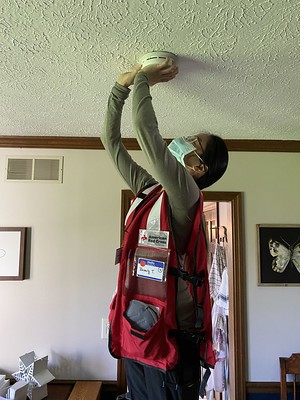
I’ll never forget in 2019 we were in the North Lawndale community, which is on the West Side of Chicago — it’s an under-resourced community. And one of the volunteers that I had — just a group of friends and colleagues at that time — we were actually installing smoke detectors on the block that she grew up on. And so she’s actually connected with some of her own former neighbors. And it was just one of those things where it really puts The Red Cross mission and vision into real life. It became alive because she knew some of these people and folks are so appreciative when you’re able to provide a service that is [a part of a] lifesaving initiative.
So in terms of the power of storytelling, it makes it very simple almost to get folks to support The Red Cross, whether financially or with the gift of their time, because you can actually see the benefit of the impact that you’re having in the community.
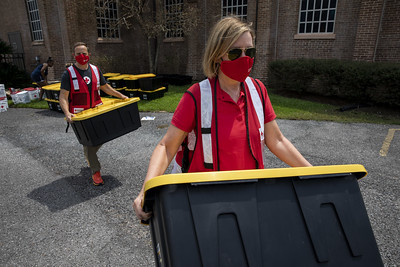
When we talk about meeting needs through services, what other areas of urgent need are there at The Red Cross, especially related to disaster relief?
So you think about what we’ve experienced or seen in the news, whether it’s the Kentucky floods or the Western fires, the fact that The Red Cross is at every [disaster] — whether it’s a local disaster or a national disaster — The Red Cross is going to be there. Outside of just the Chicago Police Department and the Chicago Fire Department, The Red Cross is usually the third respondent that is there to support the families. You can’t plan for certain things in life, you know, you can’t plan for a home fire, but the fact is The Red Cross is going to be there day or night [during] probably one of the toughest moments for displaced families. We’re boots on the ground, not only at the big national events or the catastrophes that I just mentioned, but also the local impact that we have has just really been resounding. It just makes contributing our time, our talents and our resources, for me, all the more gratifying because you know that you’re partnering and volunteering with an organization that’s having real life impact.
I think it’s important that, yes, we raise financial money because we need money to support the services that we provide to folks. But it’s also just the gift of time from these volunteers [who are] essentially on call when you can’t predict when there’s a national disaster. So the fact that folks are more than willing to answer the call, I think that’s incredibly impressive.
View this post on Instagram
On the topic of disaster preparedness, do you have any safety tips or resources you can share with us?
The Red Cross provides a lot of good information online as it relates to disaster preparedness. So a good example would be when we are doing the smoke detector installations, it’s not just about the volunteers installing smoke detectors, we also provide a level of education and we essentially help families prepare their escape plans.
Staying connected to The Red Cross [and their] online resources is a great starting point. And then when in doubt, ask the question. If there’s a specific question that folks have … on what resources might be available, present that question to The Red Cross. There’s a lot of information and resources online. I think it’s just going to be a function of folks knowing that it’s there and actually taking the time to review it.
Do you have any advice for people who are trying to navigate the logistical side of becoming a volunteer?
I would say being empathetic goes a long way. Because [when] volunteers are responding, we’re going to communities that oftentimes are under-resourced and under-served. Then if you are a part of a volunteer crew — as it relates to the home fires — it’s also meeting individuals at their time of greatest need. And so I would just encourage folks to remain very empathetic and open. Because, again, we are representing The Red Cross and the mission of providing compassionate care to victims of disasters. And you think about just being able to be empathetic and compassionate. I think those are skills that any volunteer would definitely need to master as it relates to being able to really represent The Red Cross in an impactful way.
I would also say that there’s volunteer [opportunities] for everyone, whether you are able to be on call … or [need] a set time and a set day to volunteer — there’s opportunities for that. And I would say that The Red Cross does a fantastic job of making sure that you feel adequately prepared to volunteer in whatever capacity; they do a great job of providing volunteer training and coordination. So, I would just encourage folks to look at volunteer opportunities that are of interest to you and … have the greatest impact — there’s certainly something for everyone.
Trimuel concluded with a “resounding acknowledgement” of the staff, employees and volunteers of The Red Cross. She encourages people, above all, to look into how they can make an impact in their communities, especially with the help of The Red Cross’ resources and opportunities. More information can be found on The Red Cross website, where donations can also be made.

More from Better:
- Hurricane Ian Devastates Florida: How To Help Those Impacted by the Storm
- How to Help Those Affected by Hurricane Fiona and Aid Response Efforts in Puerto Rico and Dominican Republic
- Introducing a New Study and Exploring the Future of Alzheimer’s Research
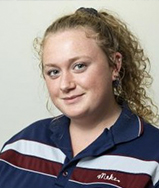
Margaret Smith is a Chicago-based writer and editor with a passion for socio-political storytelling about their community. They are a graduate of Columbia College Chicago.
